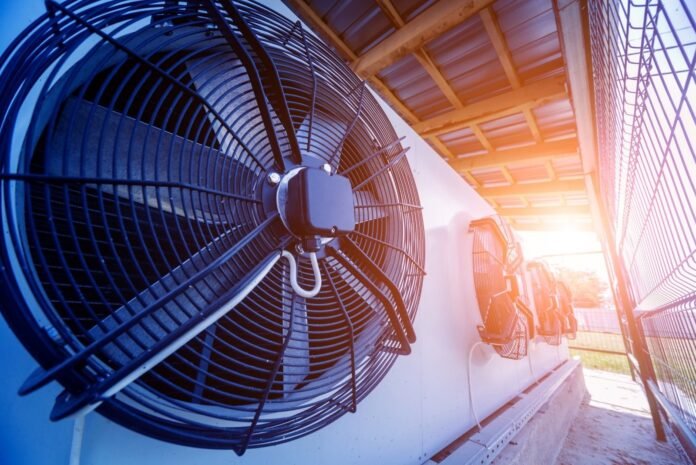With the conception of an energy-efficient world with comfort, it becomes a must-have activity for house and commercial wall-builders to ensure a secure working HVAC system. Most profoundly, if well-maintained, a proactive system will greatly minimize the possibility of a breakdown occurring and its energy efficiency, which brings about huge potential cost savings over time. Here, we try to explain why having a proactive HVAC system is important, the merits of regular maintenance, and best practices by applying which one can avoid some sort of unexpected issue all while keeping the efficiency up.
Importance of a proactive HVAC approach
Regular and timely interventions rather emphasize the proactive HVAC system, which can address critical issues before they surface. This is unlike reactive maintenance, which responds only after problems have arisen. Proactive care and monitoring stand at the center of this strategy, ensuring your HVAC system operates at its highest efficiency while extending the life cycle, thus saving you money down the road in repairs and replacements.
Benefits of Proactive HVAC Maintenance
1. Greater efficiency in energy consumption:
The most crucial advantage given by a proactive HVAC is being energy efficient. If serviced correctly, the system will perform at its peak, consuming less energy when it must heat or cool your house. Research has found that maintained systems can significantly reduce their use of energy by as much as 30% for a savings in utility charges and a drop in carbon footprint.
2. Fewer breakdowns:
Proactive maintenance may solve the small problems before they end up as the big problems. This way, there are a few unexpected breakdowns that could be caused by the most common causes of HVAC failures: clogged filters, refrigerant leaks, and malfunctioning thermostats. These problems show up during inspections before cost implications in repairs, and your house continues to be comfortable 24/7.
3. Longer Lifespan of Equipment:
An HVAC is a significant investment, and proper servicing ensures a longer life for the equipment. All parts are cleaned and maintained; you avoid early changes, and the system will last 15-20 years compared to systems that are not serviced, which would fail within ten years.
4. Indoor Air Quality Improvement
A preventive approach in HVAC maintenance is through the systematic cleaning or replacement of air filters and examination of ductwork. In this way, indoor air quality is improved since dust and allergens, as well as pollutants in your home, will be reduced. Improved indoor air quality is significant to the health and comfort of your family.
5. Cost savings:
Maintenance is an added cost in the short term but saves money for repairing costly issues and improves energy efficiency. Spending money on periodic maintenance in HVAC saves up to 20–40% of the energy bills in the long run.
Best Practices for Proactive HVAC Maintenance
To keep the HVAC system running efficiently and reliably, adopt these best practices:
1. Scheduled HVAC Maintenance:
Tune-ups Call professionals to perform tune-ups annually, preferably in the spring for cooling systems and in the fall for heating systems. Technicians will inspect all components, clean filters, check the level of refrigerant, and ensure everything is working properly.
2. Often Change Filters:
The clogged filters restrict airflow and force more labor on your HVAC tune up. They should be checked every month and replaced every 1-3 months as a function of usage and type. That alone could save a lot of energy and improve indoor air quality.
3. Monitor Thermostat Settings:
You have to ensure that your thermostat is functioning properly so that the temperature can be achieved without stressing the unit too hard. A programmable or smart thermostat, which follows a pattern of occupancy to change temperature, will add further savings.
4. Seal Ductwork
Even a small leakage in ducts makes around 30% of the conditioned air ineffective. Ductwork must be checked for leakages or gaps and sealed; thus, energy efficiency is increased. Insulation of ducts in unconditioned spaces also reduces energy loss.
5. Debris-free outdoor units
Ensure the outdoor units are debris-free, such as leaves, soil, or snow that may cover them, thereby hindering their airflow. Clean the surroundings around the unit periodically to ensure proper functioning.
6. Schedule Periodical Checks:
In addition to the annual checkup, schedule periodic checks during peak seasons to ensure everything is okay. These checks may provide potential issues before they cost one expensive repair job.
Conclusion
Maintaining your HVAC system proactively will ensure the prevention of breakdowns and optimization of your energy efficiency. With professional HVAC services, homeowners will achieve higher comfort levels while saving some money on utility bills and extending the life of their systems.
With regular tune-ups, frequent filter changes, monitoring thermostat settings, sealing ductwork, free airflow around outdoor units, and scheduling routine inspections, your HVAC system will be running efficiently throughout the year.
In the long run, a proactive approach toward managing your HVAC will save your investment, create a much healthier living environment for you and your family, and support sustainability through energy reduction.
By giving proper attention to these tactics now, you can have a peaceful night’s sleep knowing that your HVAC system is well-maintained and ready to provide its comfort when you need it the most.


